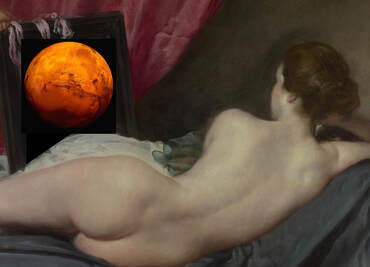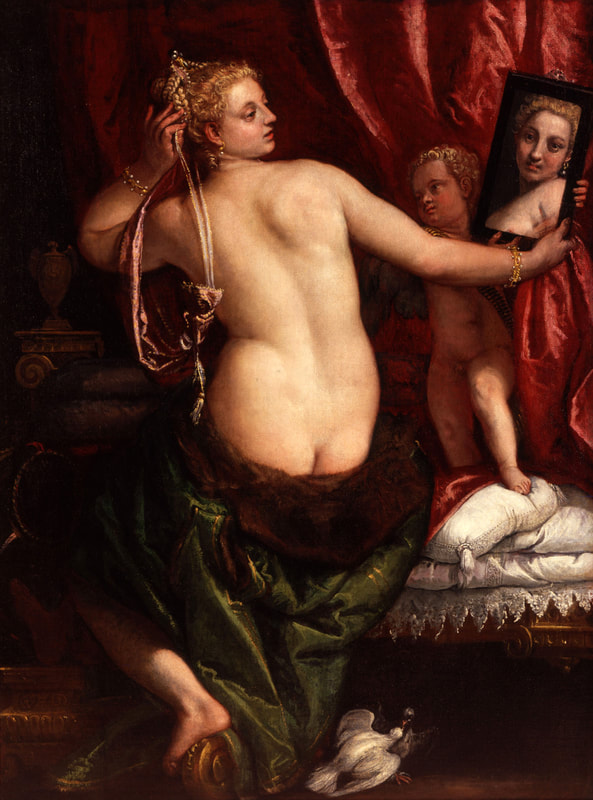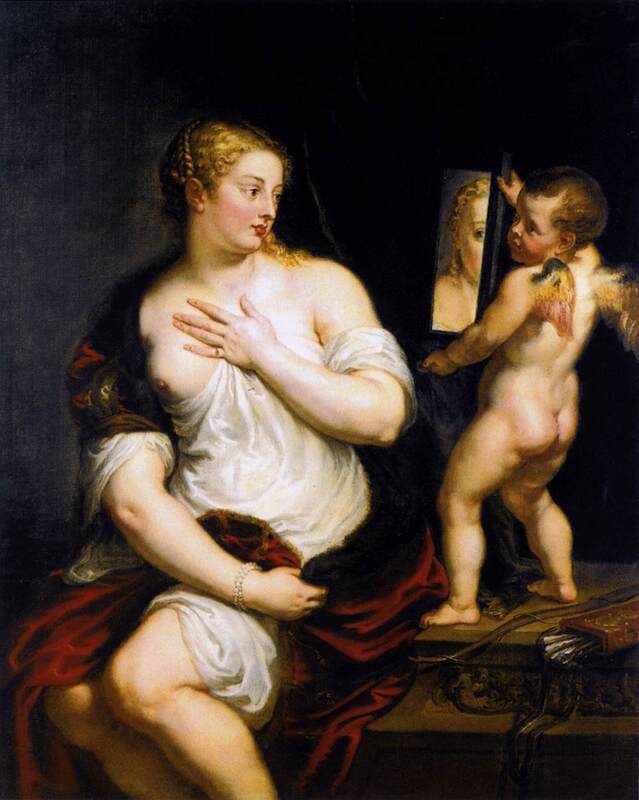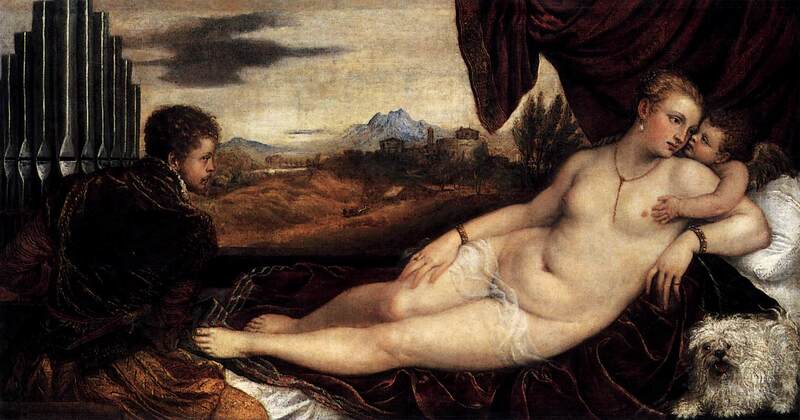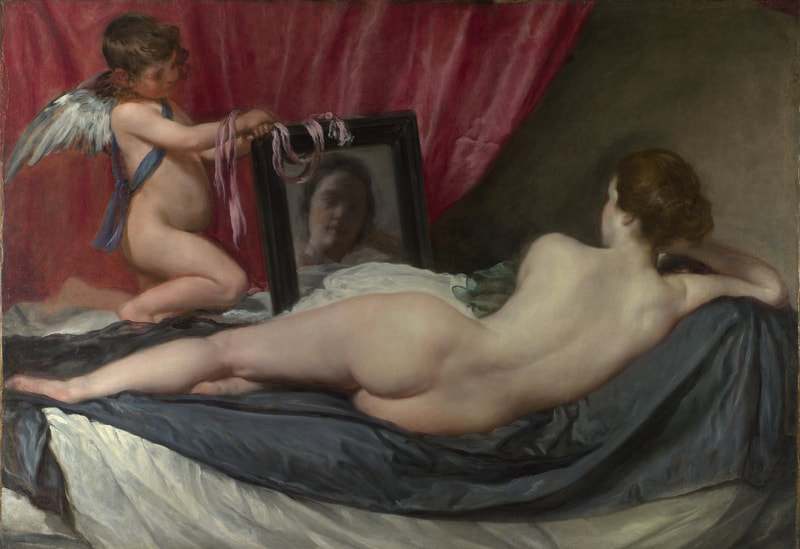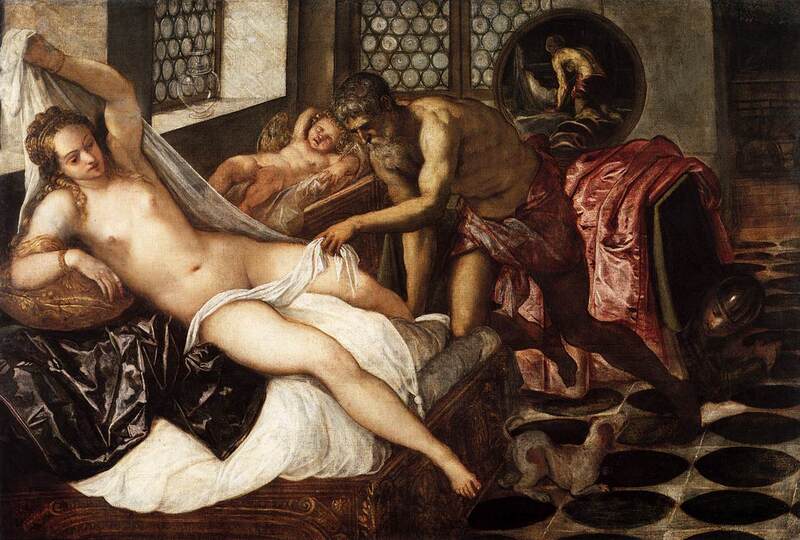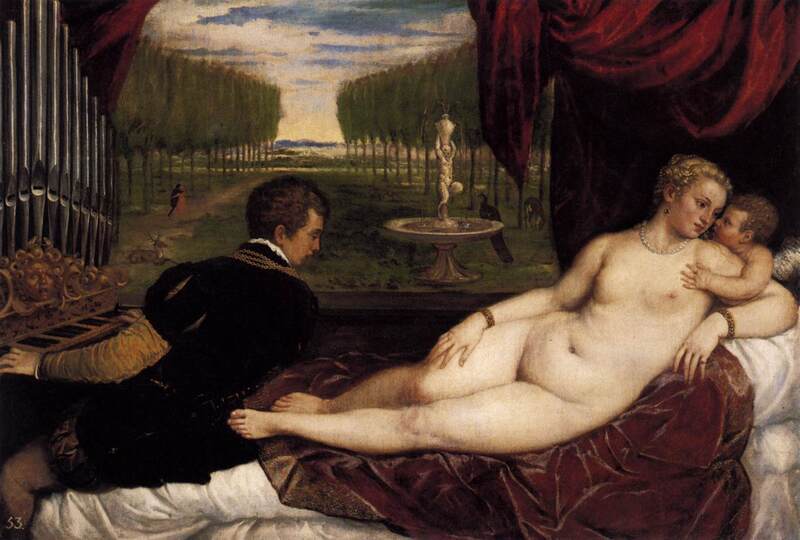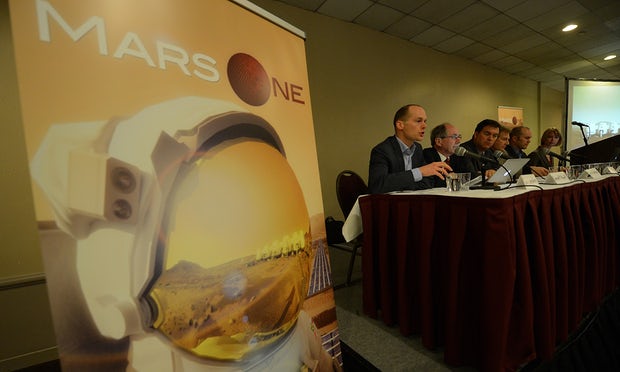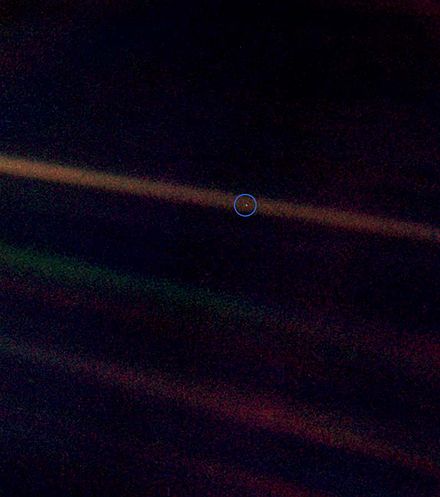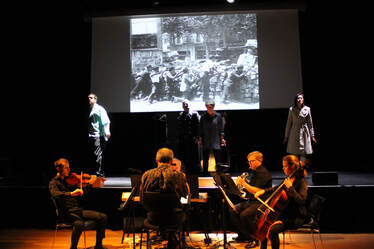The Art of Venus
chamber opera for 5 singers and 4 instrumentalists, 35 minutes
first performance at RADA Studio Theatre, London, 10 August 2017 as part of the Tête à Tête Opera Festival
The global search has begun for the first humans to set foot on Mars and make it their home. In 2032, as the spacecraft hurtles through space, humanity holds its breath… can the planet be colonised? But will Venus take it lying down? A short, post-baroque opera about the power of the gods - and a myth waiting to happen.
Contains adult themes
Characters
Mars - lyric bariitone
Venus - mezzo-soprano (coloratura)
3 Earthling Astronauts - Soprano, Tenor, Bass
Instruments
Violin, Cello, Marimba, Accordion
Original cast
Venus Kate Symonds-Joy (mezzo-soprano)
Mars Dominic Bowe (baritone)
Soprano Earthling Helen Bailey
Tenor Earthling Daniel Joy
Bass Earthling Christopher Foster
Music Edward Lambert
Text Max Waller
Conductor Olivia Clarke
Director Rebecca Meltzer
Accordion Bartosz Glowacki
Violin Maria Fiore Mazzarini
Cello Tom Isaac
chamber opera for 5 singers and 4 instrumentalists, 35 minutes
first performance at RADA Studio Theatre, London, 10 August 2017 as part of the Tête à Tête Opera Festival
The global search has begun for the first humans to set foot on Mars and make it their home. In 2032, as the spacecraft hurtles through space, humanity holds its breath… can the planet be colonised? But will Venus take it lying down? A short, post-baroque opera about the power of the gods - and a myth waiting to happen.
Contains adult themes
Characters
Mars - lyric bariitone
Venus - mezzo-soprano (coloratura)
3 Earthling Astronauts - Soprano, Tenor, Bass
Instruments
Violin, Cello, Marimba, Accordion
Original cast
Venus Kate Symonds-Joy (mezzo-soprano)
Mars Dominic Bowe (baritone)
Soprano Earthling Helen Bailey
Tenor Earthling Daniel Joy
Bass Earthling Christopher Foster
Music Edward Lambert
Text Max Waller
Conductor Olivia Clarke
Director Rebecca Meltzer
Accordion Bartosz Glowacki
Violin Maria Fiore Mazzarini
Cello Tom Isaac
photos by Claire Shovelton
What on Earth is it about?
We are introduced to 3 Earthlings as they embark on the first one-way mission to Mars (Mars-One.com planned for 2032). To what extent would leaving Earth for good feel like dying? Can we seriously live in a different environment from the one that has nurtured us? One of the hazards of space travel is a psychological freaking-out known as the Overview Effect and our volunteer astronauts find much to sing about when gazing back at the Pale Blue Dot - to which they will never return. In parallel to this adventure, there’s Mars, the Roman god, abandoned for two millennia but with an intuition that humans will return to him one day. And then comes Venus: beautiful still, but much wiser now, and militant. Her character was inspired by the story of Mary Richardson, the suffragette, who in 1914 slashed the Rokeby Venus in the National Gallery with a meat cleaver. She revealed that she hated the way nude paintings were "gloated over by men" (and she later joined the Fascist party). Certainly, the character of Venus became an excuse for artists to portray the female form in an ever more revealing and sexualised manner and her private parts are now on display in almost every art gallery in the world. So as the spacecraft approaches Mars, Venus seizes the moment to thwart the invaders - and also the aspirations of all mankind. Thus, the interactions between humans, gods and their habitats become the subject of a bizarre allegory whose musical style deliberately evokes the bel canto of baroque opera.
We are introduced to 3 Earthlings as they embark on the first one-way mission to Mars (Mars-One.com planned for 2032). To what extent would leaving Earth for good feel like dying? Can we seriously live in a different environment from the one that has nurtured us? One of the hazards of space travel is a psychological freaking-out known as the Overview Effect and our volunteer astronauts find much to sing about when gazing back at the Pale Blue Dot - to which they will never return. In parallel to this adventure, there’s Mars, the Roman god, abandoned for two millennia but with an intuition that humans will return to him one day. And then comes Venus: beautiful still, but much wiser now, and militant. Her character was inspired by the story of Mary Richardson, the suffragette, who in 1914 slashed the Rokeby Venus in the National Gallery with a meat cleaver. She revealed that she hated the way nude paintings were "gloated over by men" (and she later joined the Fascist party). Certainly, the character of Venus became an excuse for artists to portray the female form in an ever more revealing and sexualised manner and her private parts are now on display in almost every art gallery in the world. So as the spacecraft approaches Mars, Venus seizes the moment to thwart the invaders - and also the aspirations of all mankind. Thus, the interactions between humans, gods and their habitats become the subject of a bizarre allegory whose musical style deliberately evokes the bel canto of baroque opera.
"In a moment of blistering stagecraft, Venus angrily slashes her Velázquez portrait, which immediately oozes blood: the goddess smears this blood all over her sharp white suit, using it as war paint on her face and Mars’ as she exhorts him to resist the advances of humans and their intellectually reductive, pathetic, cheapening assessment of the divine. The clever use of three small, bright torches often wielded in darkness by the Earthlings achieves star-like flashings, dramatic spotlighting, and even a vision of the preciousness of the Earth as they catch torchlight carefully in cupped hands. This is a work full of strange juxtapositions: space travel and classical gods, Edward Lambert’s rich Baroque-inspired score and Max Waller’s direct and simple libretto, shot through with extreme feminism. Meltzer’s clear, minimalist concept allows the narrative to build coherently, while celebrating the surreal tension created by all these competing elements." (Charlotte Valori)
Mars & Venus
Mars, the all-powerful Roman warrior-god, lover of Venus, the embodiment of love and sexuality: what's happening to these celebs in the 21st century?
Mars, the all-powerful Roman warrior-god, lover of Venus, the embodiment of love and sexuality: what's happening to these celebs in the 21st century?
Art as pornography?
In 1914, a prominent suffragette took a meat cleaver to the painting in the National Gallery known as the Rokeby Venus and repeatedly slashed it. Contemporary reports describe the “cruel” wounds inflicted on it. Was this a feminist act?
In 1914, a prominent suffragette took a meat cleaver to the painting in the National Gallery known as the Rokeby Venus and repeatedly slashed it. Contemporary reports describe the “cruel” wounds inflicted on it. Was this a feminist act?
Human Settlement on Mars
"Mars One aims to establish a permanent human settlement on Mars. Several unmanned missions will be completed, establishing a habitable settlement before carefully selected and trained crews will depart to Mars. Mars One is a global initiative whose goal is to make this everyone’s mission to Mars, including yours. If we all work together, we can do this. We’re going to Mars. Come along!" mars-one.com
"Mars One aims to establish a permanent human settlement on Mars. Several unmanned missions will be completed, establishing a habitable settlement before carefully selected and trained crews will depart to Mars. Mars One is a global initiative whose goal is to make this everyone’s mission to Mars, including yours. If we all work together, we can do this. We’re going to Mars. Come along!" mars-one.com
The Pale Blue Dot
Carl Sagan pointed out that on that dot "every human being who ever lived, lived out their lives". The Overview Effect is a cognitive shift experienced by astronauts upon understanding the Earth to be a tiny, fragile ball of life, "hanging in the void". But feelings of euphoria can also lead to errors of judgment...
Carl Sagan pointed out that on that dot "every human being who ever lived, lived out their lives". The Overview Effect is a cognitive shift experienced by astronauts upon understanding the Earth to be a tiny, fragile ball of life, "hanging in the void". But feelings of euphoria can also lead to errors of judgment...
